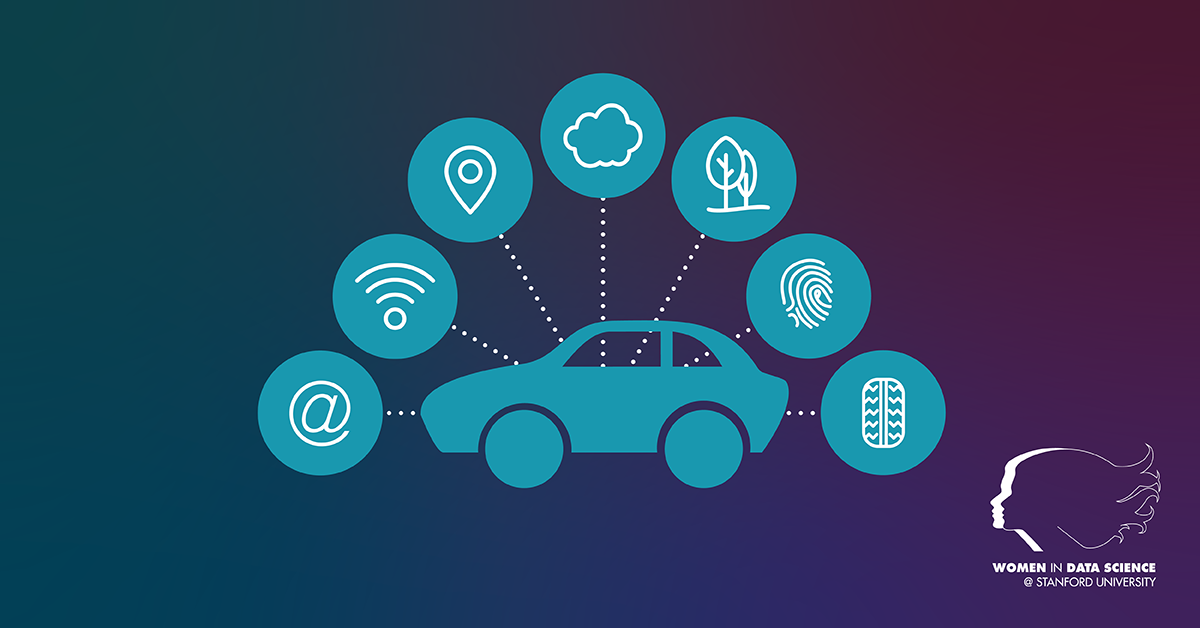Mission Impossible, Fingerprint Recognition, and Connected Cars

Highlights
Ballan brought multiple perspectives to her work on Connected Cars—drawing on expertise in data science and neuroscience gained during her ever-changing career in academia, entrepreneurship and consulting.
Ballan grew up in Turkey where it’s not unusual for women to pursue careers as scientists. In her youth, she was inspired by Mission Impossible TV shows where agents used futuristic technologies like fingerprint recognition and iris detection. She also loved cars. “Those were the things that I was really interested in. And I think my journey started from there,” she explained during a conversation with Stanford’s Margot Gerritsen, Stanford professor and host of the Women in Data Science podcast.
After studying engineering in college, she pursued her love of cars to work for Bridgestone in Turkey. “I love patterns. And our problem was the tire patterns, how we can identify the right pattern and then balance the car on that right pattern.” She left there for a chance to develop fingerprint recognition algorithms for a NATO-sponsored research center in Turkey.
While she was drawn to technology, she was also fascinated with the brain and got a PhD in complex systems and neuroscience. “I always try to run away from technology because I like to work with people. One of the reasons that I picked neuroscience was I wanted to interact with people.”
This diverse background has prepared her well for understanding both the human and technological perspectives on transforming the driving experience where the car is connected to everything. She says today the car is a platform, and we design the driving experience around sensors and data.
She believes that within her lifetime we will see autonomous cars everywhere. And she says all data scientists should be trained in the ethics of AI as we need be very mindful how we are using these technologies to improve our lives.

About the Host
Margot Gerritsen
Stanford Professor [Emerita] Margot Gerritsen is the Executive Director and co-founder of Women in Data Science Worldwide (WiDS) and born and raised in the Netherlands. Margot received her MSc in Applied Mathematics from Delft University of Technology before moving to the US in search of sunnier and hillier places. In. 1996 she completed her PhD in Scientific Computing & Computational Mathematics at Stanford University and moved further West to New Zealand where she spent 5 years at the University of Auckland as a lecturer in Engineering Science. In 2001, she returned to Stanford as faculty member in Energy Resources Engineering. Margot was the Director of the Institute for Computational & Mathematical Engineering (ICME) at Stanford from 2010-2018 and the Senior Associate Dean for Educational Affairs in Stanford’s School of Earth Sciences from 2015-2020. In 2022, Margot took Emerita status to devote herself to WiDS full time. Margot is a Fellow of the Society of Industrial & Applied Mathematics, and received honorary doctorates from Uppsala University, Sweden, and the Eindhoven University of Technology in the Netherlands. She now lives in Oregon with her husband Paul.
Connect with Margot Gerritsen on Twitter (@margootjeg) and LinkedIn.
Find out more about Margot on her Stanford Profile.


